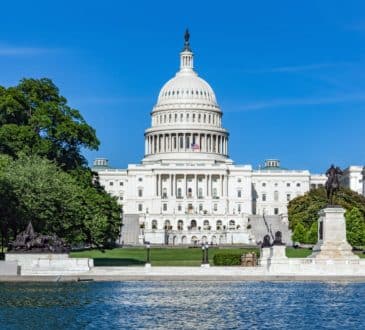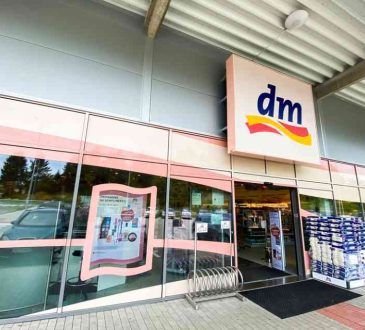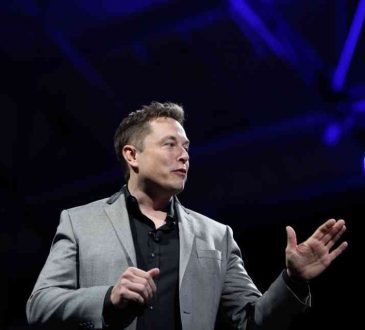Shift Happens: Crossing the Ethics Threshold by Chance or by Choice

A colleague of mine tells a difficult story about the ethics troubles of a multi-billion-dollar Canadian pharmaceutical company I’ll call pHarmX. It exemplifies an incredibly poignant lesson about the ethical choices in our personal and professional lives.
Several years ago, pHarmX developed a drug that safely lowers the aldehyde levels of the human body. It’s important to know that the human body produces aldehyde after we consume alcohol in any quantity. It’s one of the ways our bodies eliminate the alcohol through our respiration. Breathalyzers—those small, portable devices police officers use to test suspected drunk drivers don’t measure alcohol in the breath, they measure exhaled aldehyde. When someone exhales too much aldehyde, it is correlated by this device to excessive alcohol in the bloodstream. Drivers caught beyond the alcohol limit—legally drunk—wind up in jail.
PHarmX’s new, over-the-counter drug had but one purpose: to artificially lower aldehyde levels in human breath, and assist drunk drivers to avoid tickets and worse by providing false readings on breathalyzers and allowing them to head on down the road.
This new drug had passed its medical tests over several years of research, so it was legal. The formula was patented. The drug was highly marketable. And best of all, this new pHarmX drug was projected by analysts to be a very profitable product. After all, something that helps drunk drivers avoid arrest, court proceedings and expensive tickets has a built-in market of consumers looking to duck responsibility. There was, in fact, already a waiting list for the product. pHarmX was riding high on the possibilities.
Then fate intervened.
With only weeks to go before the new drug’s distribution, the teenage daughter of pHarmX’s CEO was tragically struck and killed by a drunk driver. This was devastating on its own. But given the company president’s support for pHarmX’s new drug, it was also remarkably poignant.
What happened to the drug after this accident? PHarmX never shipped it out or sold it. In fact, after spending millions of dollars on its development, patent approvals, expensive advertising, packaging and distribution contracts, the president of pHarmX scrapped the entire project and destroyed the inventory to ensure the drug stayed out of the marketplace. It was a huge loss to the company. By the way, he was also later fired.
What a tremendous emotional impact this awful accident had on this man, his family and the community. Even so, perhaps you’re asking yourself, why would any corporate CEO make things financially worse by throwing away potential profits and scrapping a whole new product line? The answer, of course, lies with ethics!
Ethics are interpreted best when they are personalized. When the choice we make has an impact directly on us or on our loved one, it takes on much more potency. In fact, my research demonstrates that personalizing the affect of our choices tends to empower more ethical decisions. Perhaps as an organization then, it is easier to minimize the health and well-being of our customers by thinking only of our own benefits and separating them form the results of our moral decisions.
Beyond the incredible challenge of losing his daughter, pHarmX’s CEO was visited personally by his company’s own ethic—the ethic he had helped create. This tragic accident cut through pHarmX’s blind desire to justify profit while risking innocent lives. In fact, this terrible and very personal accident underscored that those most at risk from pHarmX’s product weren’t its users. It was you and me, the innocent pedestrians and drivers on the same roads as the those escaping from the results of their poor choices and getting away with drunk driving.
Despite the changes in fortune for the CEO, his family and eventually, pHarmX, the ethical issue in this story was always clear; it just wasn’t clearly visible through the clouds of success and profit.
The usual business mandate for “maximizing profit” and personal goals for “maximizing wealth” became irrelevant in the spotlight of this horrific loss. The CEO’s tragedy personalized pHarmX’s true objective, to internationally sell a product that covers up potentially deadly behaviors dangerous to us all. In short, the ethical threshold of this CEO was violently breached, and his own moral integrity transformed by the close personalization of what his company’s ethics meant to the quality of others’ lives.
This is the most basic expression of good ethics, empathizing with those who have a stake in the results of our actions. This story also highlights an important fact about making good choices. Every one of us has the power and opportunity to make ethical decisions at any time. Too often in our lives, the ethics of our choices are brought to crystal clarity as the result of a tragedy.
Tragedies and challenges in our lives often create a shift in what we know and how we feel. This can have a monumental impact on our moral development and accordingly, our ethics. This transformation often moves us from some earlier version of ourselves to an upgraded version.
Learning and advancing are integral parts of our humanness— we are genetically wired to become more tomorrow than we are today. It’s inside our very nature. We develop physically, intellectually, emotionally, and spiritually as we mature. The lesson here is that moral progress and the advance of our ethical capacities are also part of our natural growth.
Change can take a lifetime or come in the blink of an eye. Since people make up organizations and so empower their moral centers. No person -no company- has to wait for the lightning bolts of misfortune or the outcome of poor choices to be more consistently ethical. I’d advise you to ask pHarmX about this, but they aren’t around anymore.
Written by Christopher Gilbert, Ph.D.
Have you read?
Win the Competition: How Can AI Help CEOs Grow Their Companies by Mehdi Nourbakhsh, Ph.D.
5 Reasons Why Saying Yes to Training Your Administrative Staff is a No-Brainer by Bonnie Low-Kramen.
Ensuring your talent pool in the war for talent by Ingrid Maynard.
Why operating at the right level is crucial for business performance by Maree Burgess.
Add CEOWORLD magazine to your Google News feed.
Follow CEOWORLD magazine headlines on: Google News, LinkedIn, Twitter, and Facebook.
This report/news/ranking/statistics has been prepared only for general guidance on matters of interest and does not constitute professional advice. You should not act upon the information contained in this publication without obtaining specific professional advice. No representation or warranty (express or implied) is given as to the accuracy or completeness of the information contained in this publication, and, to the extent permitted by law, CEOWORLD magazine does not accept or assume any liability, responsibility or duty of care for any consequences of you or anyone else acting, or refraining to act, in reliance on the information contained in this publication or for any decision based on it.
Copyright 2024 The CEOWORLD magazine. All rights reserved. This material (and any extract from it) must not be copied, redistributed or placed on any website, without CEOWORLD magazine' prior written consent. For media queries, please contact: info@ceoworld.biz
SUBSCRIBE NEWSLETTER








